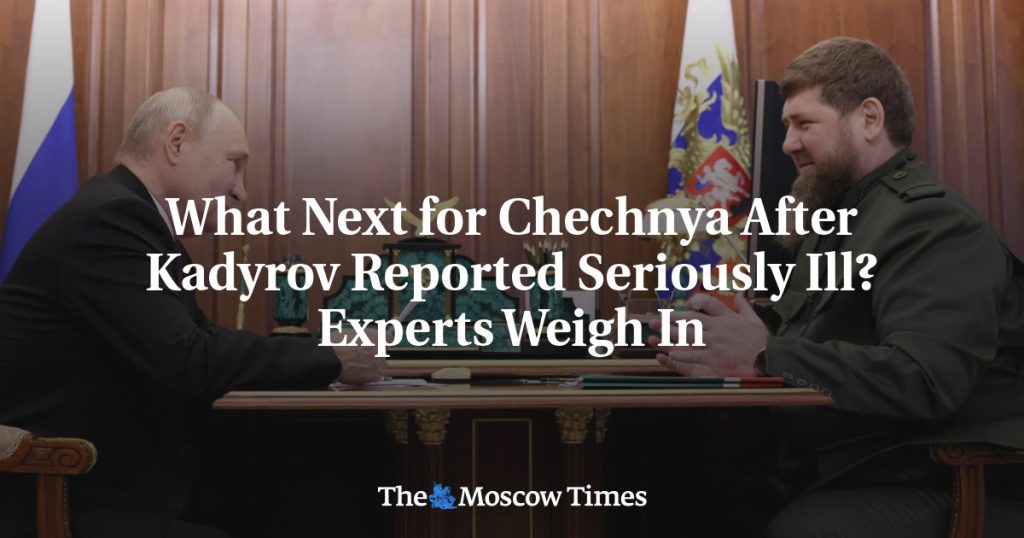Novaya Gazeta Europe reported that Ramzan Kadyrov, the leader of Chechnya, has been suffering from a potentially fatal illness for over five years. The Kremlin is reportedly working on a plan for a managed transfer of power in response to Kadyrov’s deteriorating health. The investigation also revealed that Major General Apti Alaudinov, commander of Kadyrov’s military unit, is favored by the Kremlin as a potential successor.
Leading experts and activists shared their perspectives on the implications of Kadyrov’s illness and potential succession. Tanya Lokshina from Human Rights Watch emphasized that Kadyrov’s strong position in Chechnya is not solely dependent on him as an individual, but rather on a network of individuals who would likely continue his policies and practices. Abubakar Yangulbaev, a Chechen human rights lawyer, suggested that Alaudinov may serve as a temporary placeholder until Kadyrov’s son is ready to succeed him, drawing parallels to past succession patterns in Chechnya.
Harold Chambers, an analyst specializing in the North Caucasus, criticized the assessment of Alaudinov’s viability as Kadyrov’s successor, highlighting the unique dynamics of the Kadyrov regime and its relationship with Moscow. Chambers predicted that Chechnya is unlikely to descend into chaos unless there is a regime change in the Kremlin before Kadyrov leaves power. Ivan U. Kłyszcz, a researcher of Russian policy, expressed skepticism about the story published by Novaya Gazeta Europe, cautioning against potential manipulation or disinformation.
Kłyszcz emphasized the importance of dynastic succession in Chechnya’s political landscape, suggesting that Kadyrov’s successor would likely be someone closely affiliated with him. Despite the uncertainty surrounding Kadyrov’s illness and potential succession, experts anticipate a projection of stability in Chechnya, with possible in-fighting among power brokers behind the scenes. The death of Kadyrov could create a perceived window of opportunity for increased militant activity, although the chain of command may remain intact to ensure continuity.
Overall, the investigation into Kadyrov’s health and potential succession has raised important questions about the future of Chechnya and the implications it may have for the region’s stability. While uncertainties persist about who will succeed Kadyrov and how the transition of power will be managed, experts believe that Chechnya is likely to maintain a facade of stability in the aftermath of Kadyrov’s departure. The complex interplay of internal dynamics, regime politics, and Moscow’s influence will shape the post-Kadyrov era in Chechnya.


